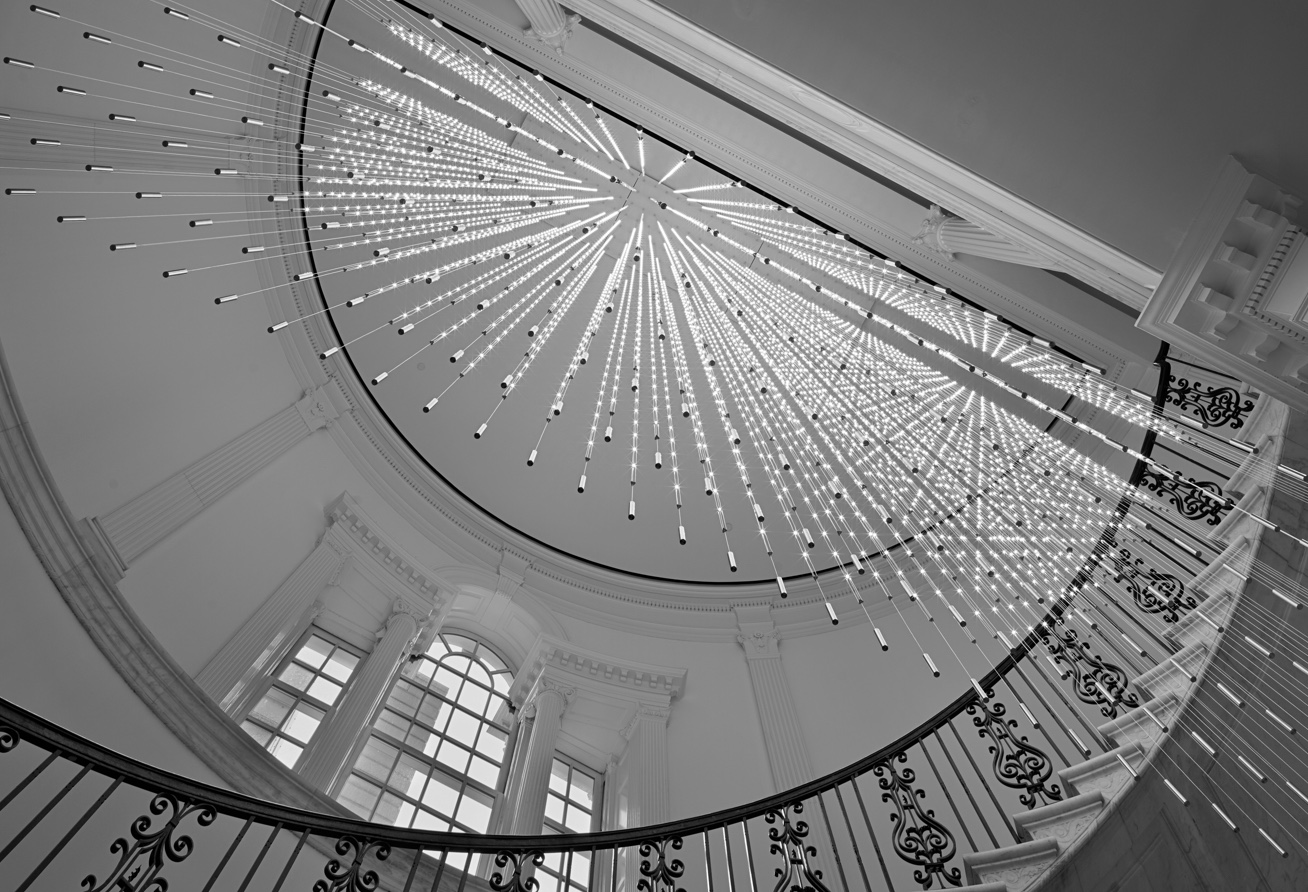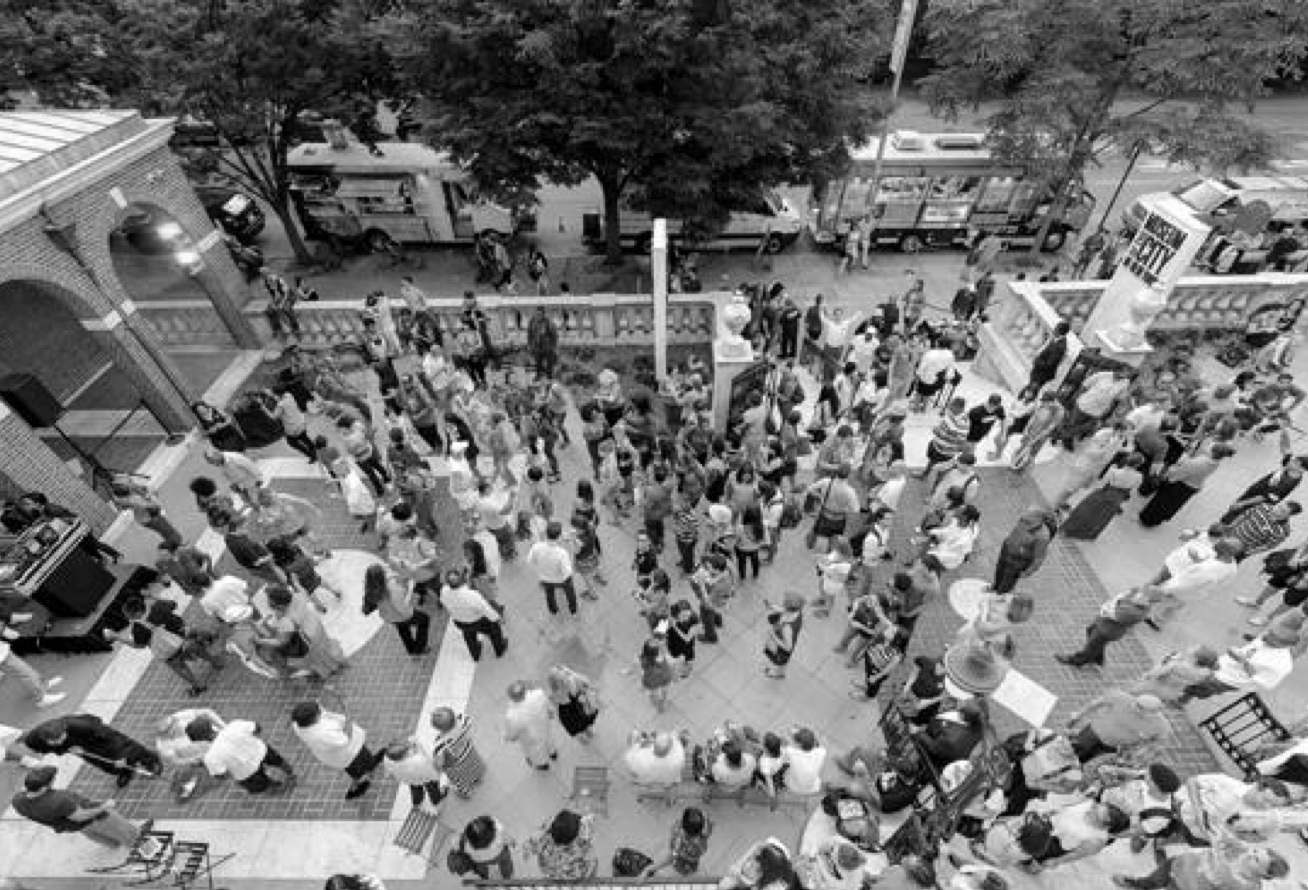Designing Tomorrow
America's World's Fairs of the 1930s
December 5, 2012 - March 31, 2013

Back to Past Exhibitions
Merging industry and artistry, the World’s Fairs of the 1930s predicted tomorrows that remarkably look like America today.
Designing Tomorrow: America's World's Fairs of the 1930s showcases six Depression-era expositions that brought visions of a brighter future to tens of millions of Americans. As many Americans still waited on bread lines, fairs in Chicago (1933/34), San Diego (1935/36), Dallas (1936), Cleveland (1936/37), San Francisco (1939/40), and New York (1939/40) foretold much of what would become commonplace in postwar America--from highways and the spread of suburbia to modernist skyscrapers and products such as electric toasters, nylon stockings, and television. The fairs looked forward to an era of prosperity, when ingenuity and innovation would transform not only American cities but also the everyday lives of American citizens. Visitors will see sleek, modern furniture and appliances of the era, vintage footage from the fairs, and futuristic drawings of the New York World's Fair's buildings from the Museum's collection.
Designing Tomorrow: America's World's Fairs of the 1930s was organized by the National Building Museum and expanded and adapted by the Museum of the City of New York.
This exhibition has been made possible in part by a major grant from the National Endowment for the Humanities*: Because democracy demands wisdom; and the National Endowment for the Arts.
*Any views, findings, conclusions or recommendations expressed in this exhibition do not necessarily represent those of the National Endowment for the Humanities.
ADDITIONAL RESOURCES
For additional content, follow the Designing Tomorrow Tumblr.
To view New York World's fair objects in the Museum's collection, browse these image selections on the Collections Portal.
The presentation of the exhibition at the Museum of the City of New York is made possible by the generous support of:
The Blanche and Irving Laurie Foundation
Con Edison
Mary and Marvin Davidson
Nixon Peabody LLP
Robert A.M. Stern Architects, LLP
Agnes Gund
Additional support is provided by:
Sally Spooner and Edward Stroz
Barbaralee Diamonstein-Spielvogel
Edith Lutyens and Norman Bel Geddes Foundation
Lee P. Gelber

